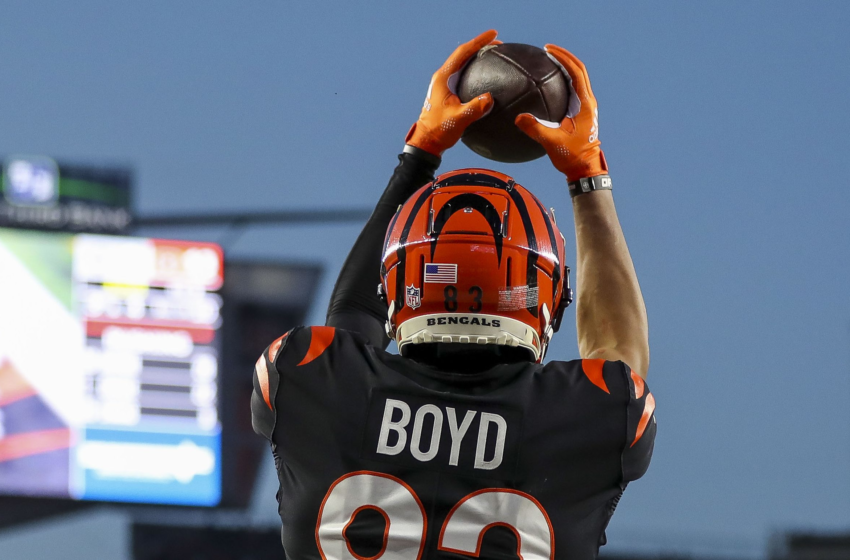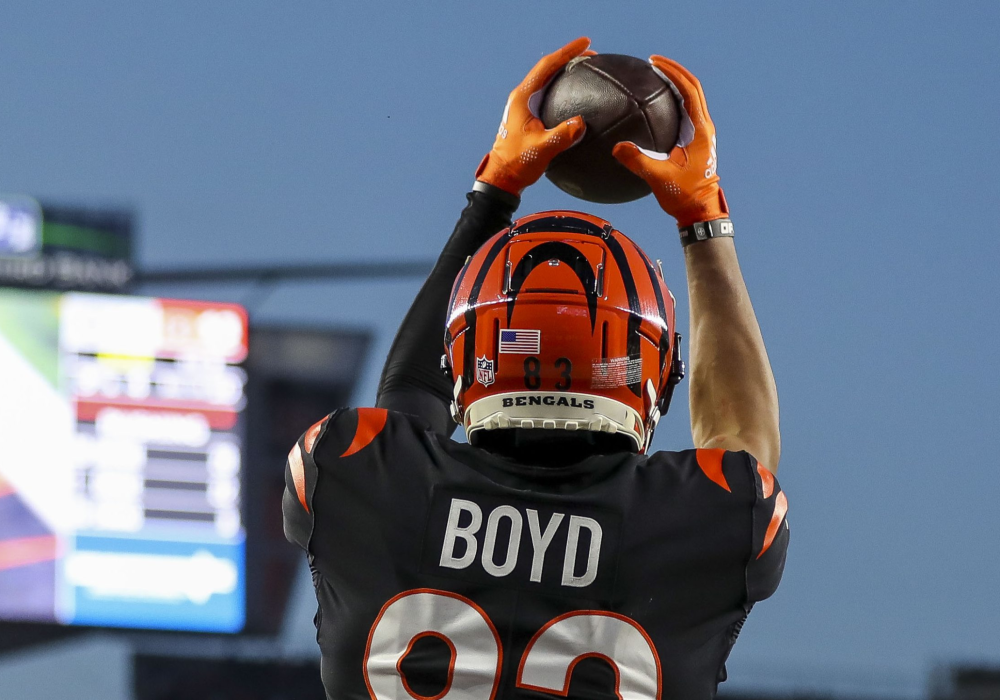
USA TODAY Sports
The first game of the 2021 postseason included a mistake that would be unacceptable in the preseason. An erroneous whistle that killed a live play.
It was clear, to anyone with functioning eyes and ears, that a whistle was blown before Bengals receiver Tyler Boyd caught the ball in the end zone for a touchdown, in a game ultimately decided by a touchdown.
Because the NFL continues to shield game officials from the same post-game press-conference accountability to which players and head coaches routinely are subjected, the most the media (and thus the fans) will ever get by way of explanation comes from the so-called pool report, where one reporter asks a series of questions about the specific call (or sometimes multiple calls) of interest.
That happened last night, with NFL senior V.P. of officiating Walt Anderson explaining (presumably with a straight face) that the officiating crew determined the whistle came after the catch was made.
A source with a team not involved in the game pointed out that Anderson arguably shouldn’t have been the person to handle the pool report, and that it perhaps should have been referee Jerome Boger.
The source passed along a highlighted copy of the NFL’s 2021 pool reporter policy. Here’s the key language from it: “If the subject matter involves instant replay, the NFL Officiating staffer responsible for the decision — not the referee — will speak with the pool reporter, since all replay reviews are conducted by a member of the Officiating Department from the NFL office.”
This seems to suggest that Boger should have handled the pool report in this case, since the pool report was prompted by the erroneous whistle and the apparent mishandling of it by Boger’s crew. The NFL disagrees.
“When replay is involved, Walt Anderson handles the pool report,” NFL spokesman Michael Signora told PFT via email on Saturday night. “When it is not, then the referee handles. So, for example, if the pool report was requested to discuss the roughing the passer call on the final drive, that would have been Jerome.”
I responded to Signora by pointing out that Anderson told the pool reporter that the erroneous whistle issue wasn’t reviewable. So how was replay involved?
“The play was ruled a touchdown on the field, so that of course triggers the automatic review, which is Walt,” Signora said.
That’s technically correct. But the pool report wasn’t sparked by whether, for example, Bengals quarterback Joe Burrow got rid of the ball before he landed out of bounds or whether Boyd got two feet down in the back of the end zone. The question flowed directly and exclusively from the non-reviewable aspect of the play. Anderson could not have been involved in the erroneous whistle issue, in any way. Other than to say, “Sorry, erroneous whistles aren’t reviewable.”
Here’s what Anderson said: “We confirmed with the referee and the crew that on that play — they got together and talked — they determined that they had a whistle, but that the whistle for them on the field was blown after the receiver caught the ball.” So why not have Boger explain that? Did someone not trust Boger to stick to the story that the whistle came after the catch, when in fact it came before the catch?
It’s a subtle but important point. When a false narrative is being perpetrated, it’s always easier for someone farther removed from the heart of the action to pull it off. Boger would have had a harder time than Anderson, because Boger was on the field when it happened and Boger was directly involved in the discussion with the crew as to when the whistle happened and what to do about it.
For Anderson, it was not only second hand news but also irrelevant to anything that fell within his jurisdiction. Boger, not Anderson, should have been required to face the music on this one. But Boger, unlike Anderson, may have folded under questioning.










